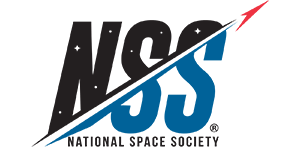
A particle radiation shield to transmit electromagnetic radiation in the visible region can be constructed out of right angle first surface mirrors made of aluminurn. Figure 5-36 shows a cross section of such a shield.
If L is the separation between chevron mirror sections and d is the thickness of the mirrors, then the total cross sectional area of a chevron mirror is 2dL/cos 45 degrees. If the mirrors were to be reformed as a uniform skin to cover the same area with the same mass of aluminum, the skin would have a thickness of 2d/cos 45 degrees which is the path length traversed by a penetrating particle incident on the chevron shield at normal incidence.
Thus the average effective thickness of the chevron shield is the same as it would be if the mass were distributed uniformly to cover the same area.
When a chevron shield is used to admit light into a shielded region that contains a gas, the individual angle mirrors must be connected by glass strips as shown in figure 5-36.

|
Curator: Al Globus If you find any errors on this page contact Al Globus. |
 |
This site was hosted by the NASA Ames Research Center from 1994-2018 and is now hosted by:
